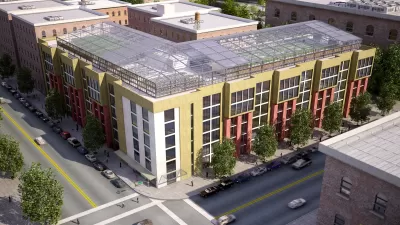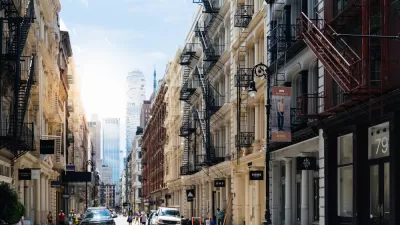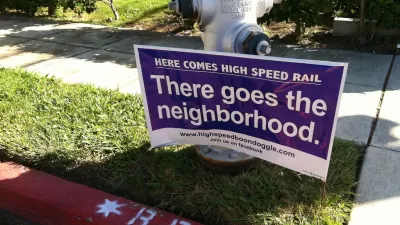Harvard economics professor Edward Glaeser discusses the research on local land use controls, and why it makes sense to reevaluate them. Successful approaches may start at the state level.

In a piece at Brookings, Edward Glaeser writes, "Reforming local land use controls is one of those rare areas in which the libertarian and the progressive agree. The current system restricts the freedom of the property owner, and also makes life harder for poorer Americans."
Historically, lighter regulations let successful parts of America build lots of new housing, encouraging people to participate in booming economies. Today, places like San Francisco limit new housing, driving up construction and arguably stifling the economy.
This may affect the nation's GDP to a surprising degree. "Land use controls that limit the growth of such successful cities mean that Americans increasingly live in places that make it easy to build, not in places with higher levels of productivity."
Glaeser suggests that while local regulations might seem intractable, states have some power to shift them. Cost-benefit analyses on the regional level could convince state leaders to either override some controls, or pay subsidies (and levy penalties) based on how much construction communities allow.
FULL STORY: Reforming land use regulations

Planetizen Federal Action Tracker
A weekly monitor of how Trump’s orders and actions are impacting planners and planning in America.

Congressman Proposes Bill to Rename DC Metro “Trump Train”
The Make Autorail Great Again Act would withhold federal funding to the system until the Washington Metropolitan Area Transit Authority (WMATA), rebrands as the Washington Metropolitan Authority for Greater Access (WMAGA).

The Simple Legislative Tool Transforming Vacant Downtowns
In California, Michigan and Georgia, an easy win is bringing dollars — and delight — back to city centers.

The States Losing Rural Delivery Rooms at an Alarming Pace
In some states, as few as 9% of rural hospitals still deliver babies. As a result, rising pre-term births, no adequate pre-term care and "harrowing" close calls are a growing reality.

The Small South Asian Republic Going all in on EVs
Thanks to one simple policy change less than five years ago, 65% of new cars in this Himalayan country are now electric.

DC Backpedals on Bike Lane Protection, Swaps Barriers for Paint
Citing aesthetic concerns, the city is removing the concrete barriers and flexposts that once separated Arizona Avenue cyclists from motor vehicles.
Urban Design for Planners 1: Software Tools
This six-course series explores essential urban design concepts using open source software and equips planners with the tools they need to participate fully in the urban design process.
Planning for Universal Design
Learn the tools for implementing Universal Design in planning regulations.
Smith Gee Studio
City of Charlotte
City of Camden Redevelopment Agency
City of Astoria
Transportation Research & Education Center (TREC) at Portland State University
US High Speed Rail Association
City of Camden Redevelopment Agency
Municipality of Princeton (NJ)




























